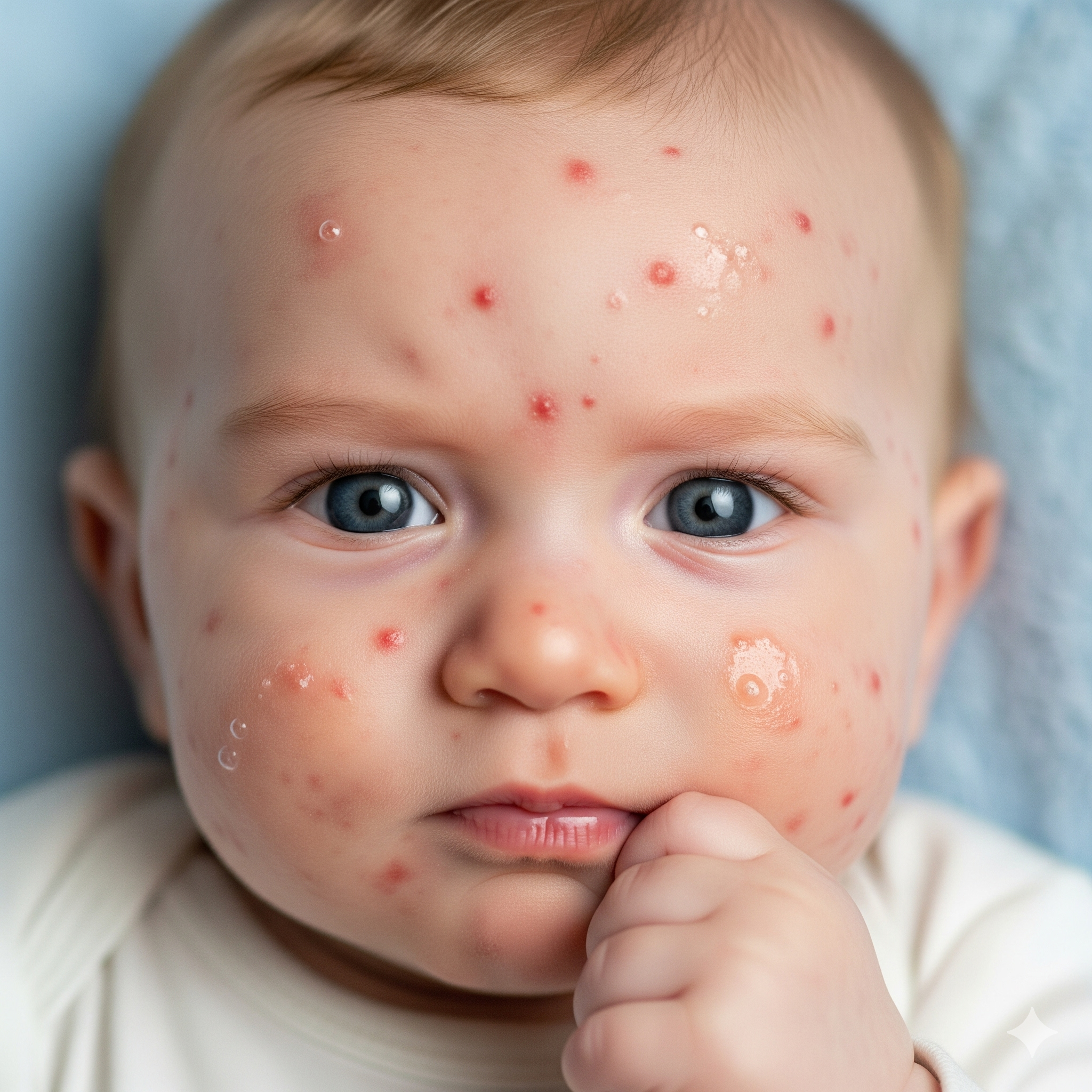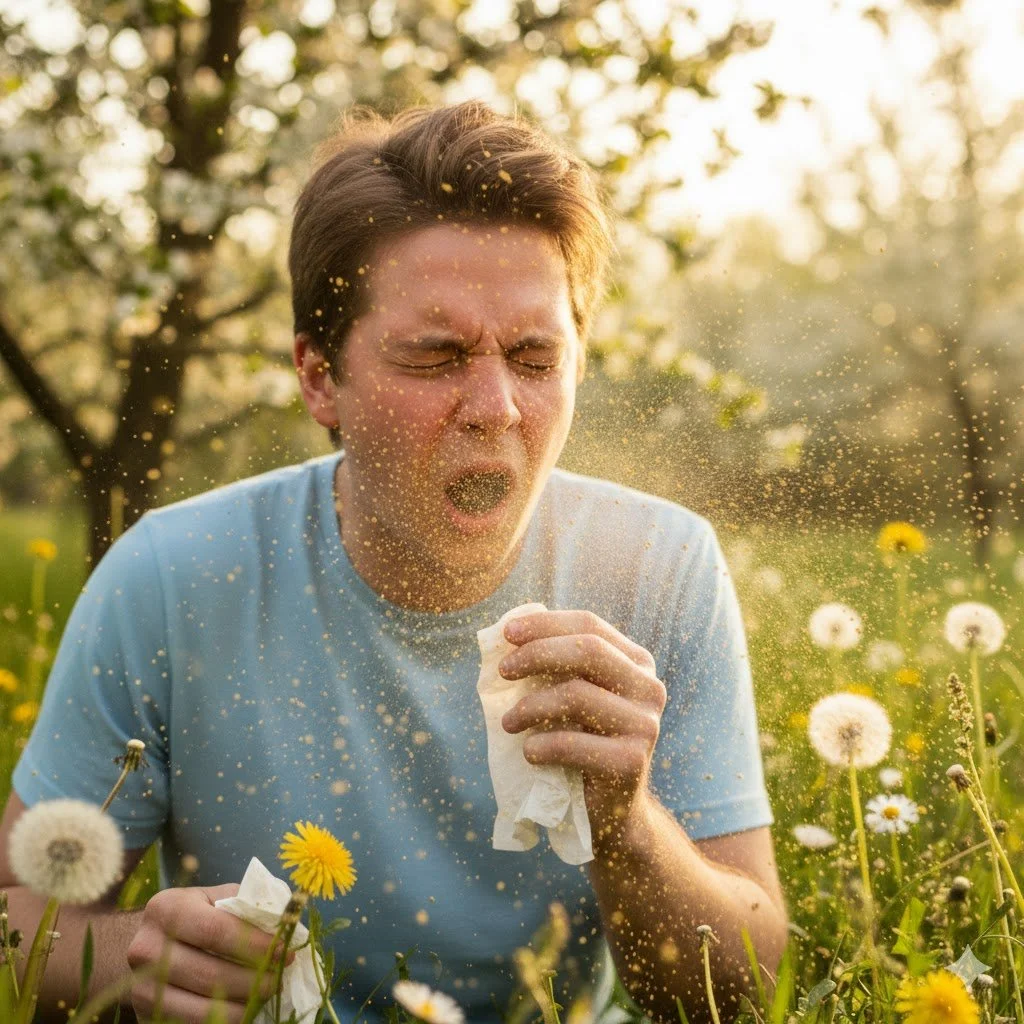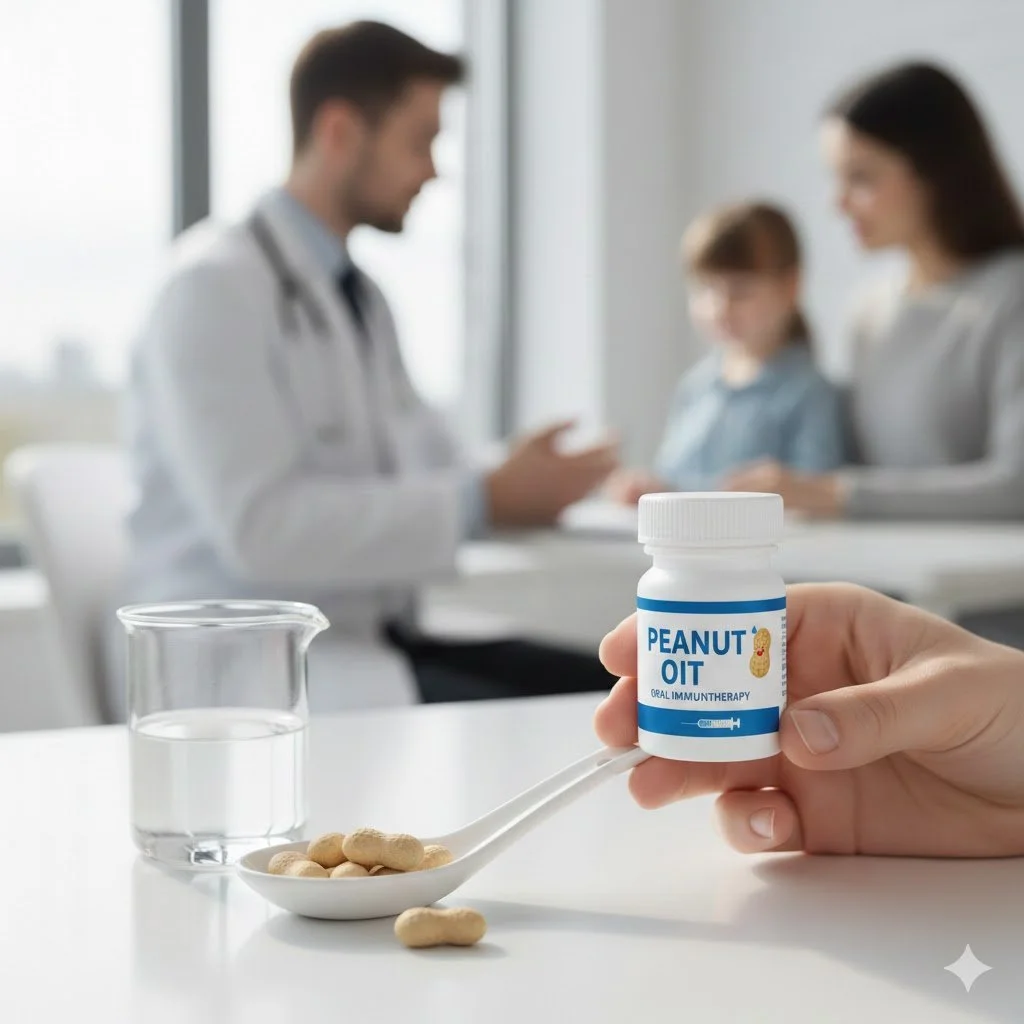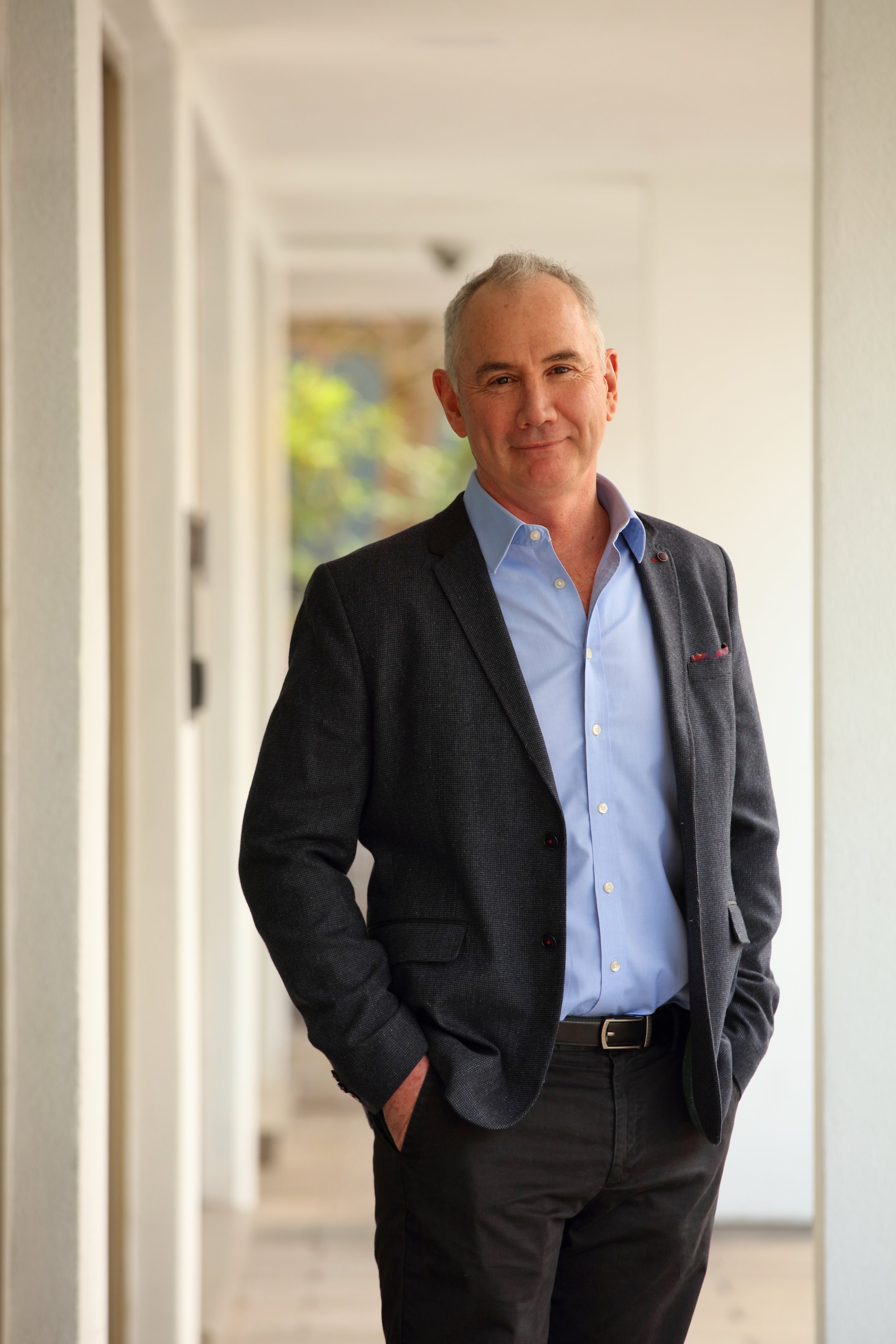NHS Chickenpox Vaccination and Eczema
Jan 2026 - The National Health Service (NHS) has rolled out a chickenpox vaccination programme for children in England and Wales.
The new vaccine will be offered as part of the routine childhood immunisation schedule as a combined measles, mumps, rubella, and varicella (MMRV) vaccine. Children will receive two doses of the vaccine, the first at 12 months and the second at 18 months of age.
A catch-up program is available for older children.
This is exciting and welcome news indeed, especially for the allergy community with eczema, who are particularly prone to skin complications, such as cellulitis, as a consequence of scratching the itchy chickenpox lesions and surrounding eczema.
Chickenpox is not always a mild disease, and some children can become terribly ill. This is all so easily avoided through vaccination.
Additional concerns and questions are addressed below, but we strongly encourage all patients and their families to get vaccinated.
To date, this has only been available in private practice in the UK, but as of January, it is available in the NHS.
Frequently Asked Questions
-
The vaccine is highly effective in preventing chickenpox and its potentially severe complications.
For healthy children, one dose of varicella vaccine provides moderate protection (approximately 81–85%) against any varicella and near-complete protection (98–100%) against moderate or severe disease.
Breakthrough cases and community transmission can still occur with a single dose, especially in high-contact settings.[1
A two-dose regimen increases effectiveness to approximately 92–95% against all varicella and 99% against moderate or severe disease, with no evidence of waning immunity over at least 10 years of follow-up.
The incremental benefit of the second dose is substantial, both in reducing incidence and in preventing outbreaks.
Real-world studies from multiple countries confirm these findings, with two-dose effectiveness consistently above 93%.
The vaccine is also effective in reducing varicella-related hospitalizations and complications, with single-dose effectiveness against hospitalization reported at 96% and two-dose regimens providing even greater protection.
The optimal schedule is to administer the first dose at 12–15 months and the second dose at 4–6 years, as supported by long-term cohort and case-control studies.
In summary, the chickenpox vaccine is highly effective, especially with a two-dose schedule, in preventing varicella and its severe outcomes.
-
When an individual with eczema contracts chickenpox, the broken skin barrier and altered immune response associated with eczema can lead to a more severe and complicated infection.
Back in 2015, Prof du Toit showed ‘It was found that children with atopic dermatitis were significantly more likely to have varicella zoster virus
infection complicated by cellulitis (21% versus 6%; p=0.05), haemorrhagic varicella (14% versus 2%; p=0.04) and
superimposed ‘skin and soft tissue infection’ (61% versus 34%; p=0.008). Subjective severity of scarring was scored
significantly higher in children with atopic dermatitis compared to those without (p = 0.006). The chickenpox rash is often more widespread and intensely itchy in those with eczema, and scratching can easily lead to secondary bacterial infections, such as impetigo and cellulitis, which may require antibiotics.
There is also an increased risk of a rare but serious condition called eczema herpeticum, a widespread viral infection of the skin that requires urgent medical attention and antiviral treatment. While typically caused by the herpes simplex virus, the varicella-zoster virus that causes chickenpox can also lead to a similar severe eruption in individuals with pre-existing skin conditions like eczema.
Therefore, it is crucial for individuals with eczema, or parents of children with the condition, to be vigilant for signs of severe infection and to seek medical advice for appropriate management, which may include antiviral medication in addition to standard chickenpox care.
-
Yes, the chickenpox vaccine significantly reduces the risk of developing shingles later in life. Both chickenpox and shingles are caused by the same virus, the varicella-zoster virus. After a person recovers from chickenpox, the virus remains dormant in the nerve cells. It can reactivate years later, causing the painful rash known as shingles.
The chickenpox vaccine contains a live, but weakened (attenuated), form of the varicella-zoster virus. This weakened virus is strong enough to trigger a protective immune response in the body but is much less likely to become dormant and reactivate as shingles compared to the wild virus that causes a natural chickenpox infection.
Therefore, individuals who have been vaccinated against chickenpox have a much lower chance of developing shingles than those who have had a natural chickenpox infection. While it is still possible to get shingles after being vaccinated, the risk is considerably lower, and if it does occur, the illness is often milder.
Worried About Allergies? Let’s Help You Get Answers
If your child is showing signs of a food, pollen, or skin allergy, early diagnosis is key. At London Allergy Consultants, our expert team provides trusted, evidence-based care tailored to your child’s needs. From testing to treatment plans, we guide you every step of the way.
London Allergy Consultants
London Allergy Consultants is a leading UK centre for diagnosing and treating food and airborne allergies in children and young people.






Sesame Oral Immunotherapy (OIT) has emerged as a Sesame Oral Immunotherapy (OIT) has become a medical therapy for children with severe sesame allergies. Unlike simple avoidance, OIT aims to retrain the immune system by allowing the regular, supervised consumption of small amounts of sesame protein.